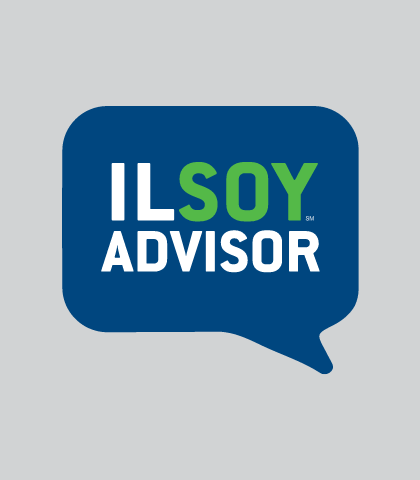Now is a great time to be out scouting soybean fields to better understand how the crop is interacting with your fields ecosystems. This time of year, before maturity and harvest, we can still observe several different types of organisms that are attacking and feeding on leaves and pods, which will ultimately reduce yields and grain quality.
Soybean seed treatments will help protect an emerging seed from insect and disease damage. However, yield-limiting insects and disease also attack during the reproductive stages. It’s important to understand what symptomology is being observed and where it’s located in the field.
A piercing, sucking mouth part indicates the method of feeding and potential damage. This insect will insert its dagger-like mouth part into a soybean pod wall to extract the juices that are vital to developing seed. This type of damage can lead to a loss in yield and grain quality due to shriveled pods and smaller, discolored beans.

A chewing mouth part’s symptoms show up on leaves in the middle to upper canopy. This type of damage is associated with leaf defoliation and the potential to transmit viruses, reduce yields and reduce grain quality.

Leaf disease can originate in the infected field by overwintering in crop residue, be blown in with wind or, in the case of a virus, be transmitted by insect feeding.

It’s important to understand which disease is being observed, as this will help to understand treatment options and potential yield and grain quality impact. Now is a great time to evaluate soybean variety trials in your region to understand the disease scores of varieties that you may be planting on your farm next year. There are several new seed treatments entering the marketplace to help reduce pressure from Sudden Death Syndrome (SDS) and cyst nematodes (SCN).




 and then
and then